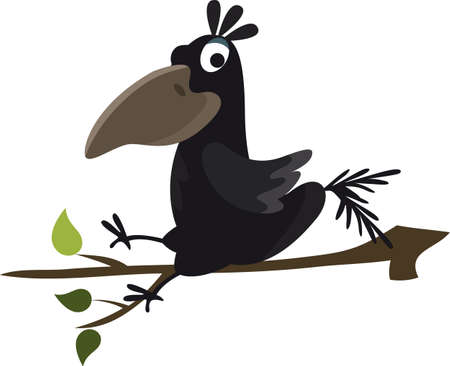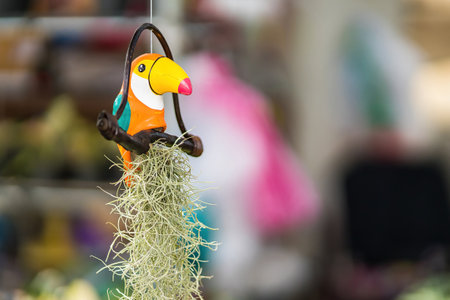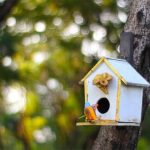1. Introduction to Toucans and Toucanets
Toucans and toucanets are some of the most visually striking birds in the world, known for their large, colorful beaks and playful personalities. While they may seem like exotic and exciting pets, keeping one requires a deep understanding of their unique needs. Unlike parrots or other common pet birds, toucans and toucanets have specific dietary and environmental requirements that make them quite different from traditional companion birds.
What Makes Toucans and Toucanets Unique?
Toucans and toucanets belong to the Ramphastidae family, which includes about 40 species. While they share similarities with other tropical birds, their distinct characteristics set them apart:
| Feature | Description |
|---|---|
| Beak | Their large, lightweight beak is not just for show—it helps them grab fruit and regulate body temperature. |
| Diet | Toucans primarily eat fruit but also require low-iron diets to prevent health issues. |
| Social Behavior | Toucans are intelligent and social but do not mimic speech like parrots. |
| Space Requirements | Toucans need large enclosures with plenty of room to hop and fly. |
Toucans vs. Parrots: Key Differences
A common misconception is that toucans are similar to parrots because they are both tropical birds. However, there are significant differences between the two:
- No Talking Ability: Unlike parrots, toucans do not mimic human speech.
- Softer Calls: Toucans make clicking and croaking noises instead of loud screeches.
- No Need for Chewing Toys: Unlike parrots that love to chew, toucans use their beaks primarily for eating.
- Differing Diets: Parrots can eat seeds and nuts, but these are harmful to toucans due to high iron content.
The Appeal of Toucans as Pets
Toucans are incredibly entertaining birds that form strong bonds with their owners. Their playful nature makes them fun to watch, as they love hopping around rather than climbing like parrots. If given enough space and the right care, a pet toucan can be a fascinating companion.
2. Creating the Ideal Habitat
Providing a suitable habitat is essential for keeping a toucan or toucanet happy and healthy. These birds require plenty of space, proper environmental conditions, and mental stimulation to thrive in captivity.
Cage Size and Setup
Toucans and toucanets are highly active birds that need ample room to move, hop, and fly. A small cage will not suffice for these energetic creatures. Consider the following recommendations for cage size:
| Bird Type | Minimum Cage Size |
|---|---|
| Toucan (larger species) | 5 ft x 5 ft x 8 ft (1.5m x 1.5m x 2.4m) |
| Toucanet (smaller species) | 3 ft x 3 ft x 6 ft (0.9m x 0.9m x 1.8m) |
The cage should have horizontal perches at different heights, as toucans prefer hopping over flying. Use natural wood branches to encourage foot exercise and provide a more natural environment.
Enrichment and Mental Stimulation
Toucans are intelligent birds that require daily enrichment to prevent boredom and stress. Without stimulation, they may develop destructive behaviors or health issues.
- Toys: Offer a variety of bird-safe toys, such as hanging ropes, wooden blocks, and puzzle feeders.
- Foraging Opportunities: Hide food in different parts of the enclosure or use foraging toys to encourage natural behaviors.
- Social Interaction: Spend time interacting with your toucan daily; they enjoy human companionship and mental engagement.
Temperature and Humidity Requirements
Toucans originate from tropical environments, so maintaining appropriate temperature and humidity levels is crucial for their well-being.
| Condition | Recommended Range |
|---|---|
| Temperature | 65-85°F (18-29°C) |
| Humidity | 60-80% |
Avoid exposing your toucan to sudden temperature changes or drafts. Using a humidifier can help maintain proper humidity levels, especially in drier climates or during winter months.
A Safe and Secure Environment
Toucans are curious birds that can get into trouble if their environment is not carefully managed. Here are some key safety tips:
- Avoid Toxic Materials: Ensure that perches, toys, and other materials are free from toxic chemicals or paints.
- No Small Openings: Toucans can squeeze through surprisingly small gaps; make sure the enclosure is escape-proof.
- No Ceiling Fans: If allowing your toucan supervised out-of-cage time, turn off ceiling fans to prevent accidents.
- Avoid Teflon Cookware Fumes: Non-stick cookware releases harmful fumes when overheated, which can be deadly to birds.
A properly designed habitat ensures your toucan or toucanet remains comfortable, engaged, and safe in its home environment.

3. Proper Diet and Nutrition
Providing the right diet for your toucan or toucanet is essential for their health and longevity. These birds have specific dietary needs that must be met to prevent common health issues such as iron storage disease (ISD). A well-balanced diet includes fresh fruits, low-iron pellets, and avoiding harmful foods.
Essential Dietary Needs
Toucans and toucanets primarily thrive on a fruit-based diet. However, not all fruits are safe, and their diet should also include specially formulated low-iron pellets to ensure balanced nutrition.
Safe Fruits for Toucans
Fresh fruits should make up the majority of their diet. Choose high-moisture, low-iron options to keep them hydrated and healthy.
| Safe Fruits | Benefits |
|---|---|
| Papaya | Rich in vitamins A and C, supports digestion |
| Mango | Packed with antioxidants and vitamin A |
| Berries (blueberries, strawberries) | High in antioxidants, low in iron |
| Pineapple | Aids digestion with natural enzymes |
| Pear | Mild and hydrating, good fiber source |
| Banana | Easily digestible, provides potassium and energy |
Avoid High-Iron Foods
Toucans are prone to iron storage disease, so it’s crucial to limit their iron intake. Avoid foods that contain excessive iron or additives that could harm their liver.
| Avoid These Foods | Dangers |
|---|---|
| Citrus Fruits (oranges, lemons) | Can increase iron absorption, leading to ISD risk |
| Dried Fruits (raisins, apricots) | Tend to be high in sugar and iron content |
| Avoocado | Toxic to many bird species, including toucans |
| Dairy Products (cheese, milk) | Toucans lack the enzymes to digest lactose properly |
| Caffeine & Chocolate | Toxic to birds, affects heart function negatively |
| Sugary or Processed Foods | Poor nutritional value, can lead to obesity and liver problems |
The Importance of Low-Iron Pellets
A well-balanced diet should also include specially formulated low-iron pellets designed for softbill birds. These pellets provide essential nutrients while preventing excessive iron buildup in their system.
Selecting the Right Pellets:
- Choose pellets labeled for softbills: These are specifically made for toucans and help manage iron levels.
- Avoid generic bird food: Many standard bird diets contain too much iron for toucans.
- No artificial preservatives: Opt for natural ingredients whenever possible.
- Pellet-to-fruit ratio: About 40% of their diet should consist of low-iron pellets.
Hydration Matters Too!
Toucans get most of their hydration from fresh fruit, but they should always have access to clean drinking water. Change their water daily to prevent bacterial growth.
A proper diet plays a crucial role in keeping your toucan or toucanet happy and healthy. By feeding them the right balance of fruits and low-iron pellets while avoiding harmful foods, you can prevent serious health issues like iron storage disease and ensure they thrive in captivity.
4. Behavior and Social Needs
Toucans and toucanets are highly social birds that thrive on interaction and mental stimulation. In the wild, they live in small flocks or pairs, constantly communicating with each other through vocalizations and body language. Understanding their social nature is crucial for keeping them happy and healthy in captivity.
Understanding Their Social Nature
These birds are not solitary creatures. They enjoy company, whether it’s from other birds, their human caretakers, or engaging environments that mimic natural settings. If left alone for long periods without stimulation, they can develop stress-related behaviors such as feather plucking or excessive vocalization.
Interaction Needs
To maintain a strong bond with your toucan or toucanet, daily interaction is necessary. Unlike parrots, they do not crave physical affection like petting, but they do enjoy engaging activities such as:
- Playing with toys designed for foraging
- Exploring different textures and perches
- Interacting with puzzle feeders
- Engaging in supervised out-of-cage time
- Communicating through soft vocal exchanges
Providing Mental Stimulation
A bored toucan is an unhappy toucan. To prevent boredom and stress, provide a variety of mentally stimulating activities:
| Stimulation Method | Description |
|---|---|
| Toys & Enrichment | Offer chewable toys, hanging ropes, and objects that encourage exploration. |
| Puzzle Feeders | Use treat-dispensing toys to make mealtime more engaging. |
| Training Sessions | Teach simple tricks using positive reinforcement to keep their minds active. |
| Social Interaction | Spend time talking to your bird and offering new experiences. |
| Safe Outdoor Time | If possible, allow supervised outdoor exposure in a secure aviary. |
Avoiding Stress and Loneliness
Toucans can become stressed if their environment lacks engagement. Signs of stress include:
- Lethargy or lack of interest in food and play
- Feather plucking or excessive preening
- Loud or repetitive calls indicating distress
- Aggressive behavior towards humans or other pets
If you notice these signs, assess their environment and increase enrichment opportunities. A well-stimulated toucan is a happy one!
Should You Keep More Than One?
If space allows, keeping more than one toucan or toucanet can be beneficial. However, introductions should be done carefully to ensure compatibility. Some birds may prefer solitude with only human interaction, while others thrive in pairs or small groups.
By understanding their social needs and providing proper enrichment, you can ensure your toucan or toucanet remains both physically and mentally healthy.
5. Potential Challenges and Special Considerations
Noise Levels
Toucans and toucanets are not as loud as some parrots, but they do make a variety of vocalizations. Their calls can be repetitive and may become bothersome in an apartment or shared living space. If you live in a noise-sensitive environment, this is something to consider before bringing one home.
Messiness
These birds are messy eaters. They love to toss fruit around, and their droppings can be watery due to their high-fruit diet. Regular cleaning is necessary to maintain hygiene and prevent fruit stains on furniture or floors.
Veterinary Care
Toucans require specialized avian veterinarians, which may not be available in all areas. They are prone to iron storage disease (hemochromatosis), so their diet must be carefully monitored. Regular check-ups are essential to ensure they remain healthy.
Legal Restrictions
Owning a toucan or toucanet is not legal everywhere. Some states and regions have strict regulations regarding exotic pet ownership. Before getting one, check local laws to ensure you are allowed to keep a toucan as a pet.
Legal Status by State (Example)
| State | Legal Status |
|---|---|
| California | Not Allowed |
| Texas | Allowed with Permit |
| Florida | Allowed with Restrictions |
| New York | Banned |
If you’re considering a toucan or toucanet, always research the challenges involved to ensure youre prepared for their unique needs.


